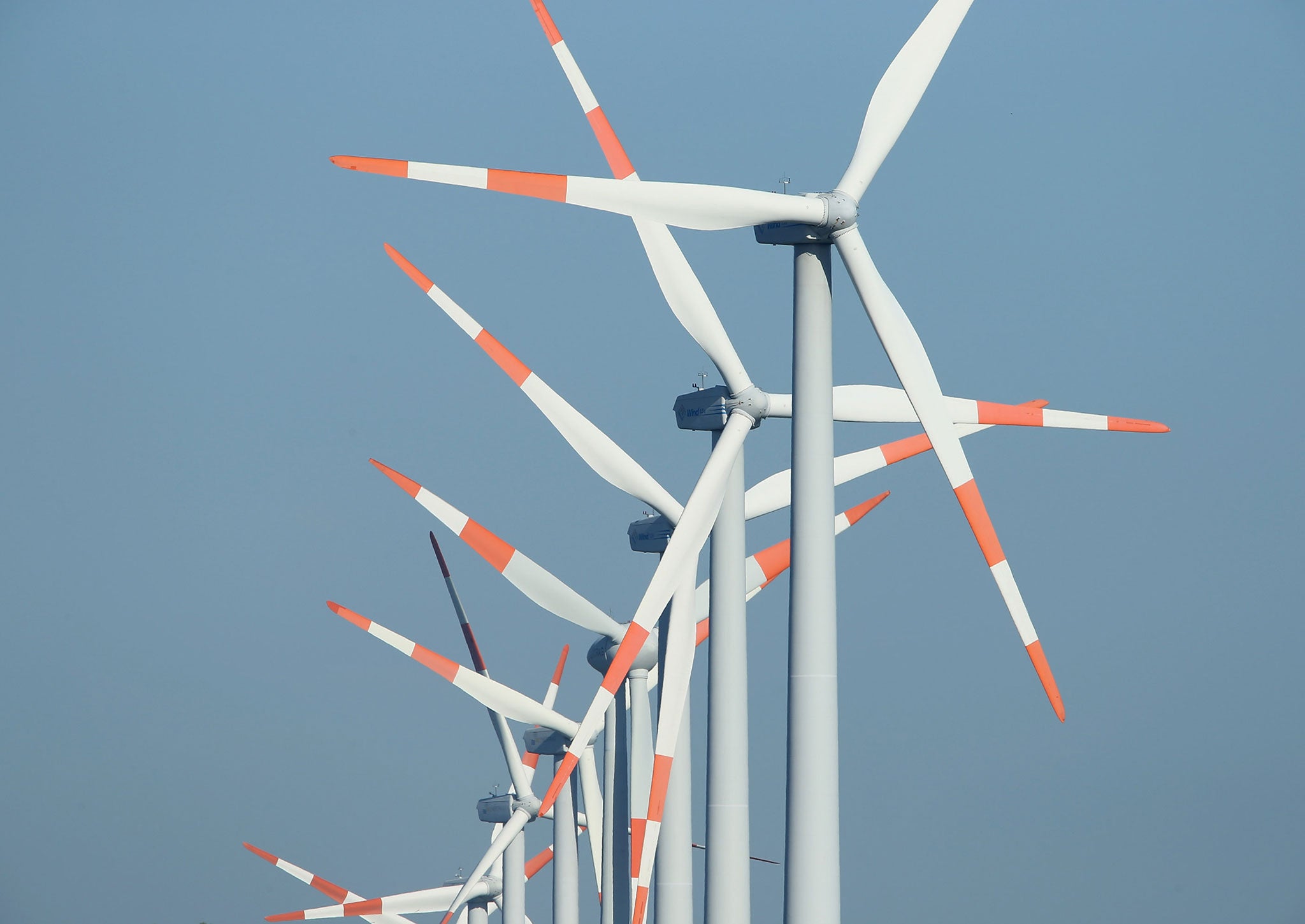We will never reduce energy bills as long as we are in hock to the green lobby
It's time to scrap all current green taxes - and future subsidy schemes too

It’s been remarkable and quite disturbing to see the success that MPs have had in blaming the energy companies for price rises that are the direct result of their own policies. Labour says that energy companies risk being seen in the same light as “greedy bankers”. But when the dust settles, it’ll be clear that it’s the same MPs who are to blame.
It was Ed Miliband – when he was Environment Secretary in 2008 – who saw through the disastrous Climate Change Act, which did so much of the damage we are currently suffering from. This Act imposed EU climate policy on the UK, but, as happens all too often, Westminster gold-plated the legislation to further increase the burden of regulation on our homes and businesses. With only a handful of votes against, the House of Commons imposed draconian, legally binding targets to 2050, the cost of which is estimated at as much as £18bn a year for 40 years; an eye-watering total of £720bn.
It was Chris Huhne who set out to cover the country in wind turbines. We subsidise the operators, we subsidise the landowners, we subsidise grid access. Now the EU is planning “capacity charges” to subsidise the operation of fossil-fuel back-up, and there’s talk of subsidising large-scale electricity storage mechanisms to counter the intermittency of renewables. The country cannot rely on renewables as a major source of energy.
Chris Huhne went to jail for transferring his speeding points to his (then) wife. But the economic and aesthetic damage he has done to our country was a much greater crime. His successor in the post of Energy Secretary, Ed Davey, refuses to acknowledge the extent to which green charges are bumping up energy prices, with subsidies being added to all of our energy bills. He fights to keep these charges in place regardless of the fuel poverty that more and more people are finding themselves in. So we have feed-in tariffs, Renewable Obligation Certificates, an EU Emissions Trading Scheme, a carbon floor price. The list goes on. They’ve created a cat’s-cradle of cost and regulation, and now they try to blame the energy companies for the result.
We’ve seen energy prices rising by close to 10 per cent. The only major supplier to buck the trend has been EDF, with a rise of 3.9 per cent. Of course, it’s difficult to say just how much green taxes and subsidies cost, but most estimates seem to come out around 10 per cent of bills. There are contingent and consequential costs that are never taken into account. Because they’re intermittent, renewables export massive inefficiency to their essential fossil-fuel back-up (normally gas), largely offsetting the generating capacity and emissions reduction that wind farms are supposed to deliver. There are multibillion-pound costs in adapting the grid to cope with small-scale distributed generation.
Ed Davey argues that green costs are only a part of the problem. The main issue (he says) is the rising cost of fossil fuels. To an extent, he’s right. Again, the old-party politicians are to blame. They accepted Brussels’ diktat to close down perfectly good coal-fired power stations. Meanwhile, Germany is building or refurbishing more than 20 coal-fired plants. Why aren’t we doing the same and securing our energy production?
Then we’ve been relying on expensive gas imports from Russia and countries that are insecure and vulnerable to political interference. It’s now clear that right here in the UK we have large quantities of gas under our feet, yet the Government has been dilatory about recovering it – or even pressing ahead with exploration. It seems to be more concerned about the green lobby than it is about ensuring a secure form of energy. Compared with, say, the coal industry, on which Britain’s Industrial Revolution was based, the emerging shale gas industry is safer, cleaner and much less visually intrusive. Yet the green activists are hysterical in their opposition. It’s time for government to stop listening to small pressure groups and to start worrying about taxpayers, businesses and consumers.
The impact of electricity prices goes way beyond domestic bills. Without wishing to be alarmist, we must face the fact that thousands of pensioners in our country will die unnecessarily of cold this winter because of energy prices and fuel poverty. But the impact on industry is also severe. Companies are closing. Businesses are moving out of the UK (and out of the EU) altogether, taking their jobs and their investment with them. This is not just a Ukip view. Recently the EU’s German Energy Commissioner, Günther Oettinger, said that Europe could not continue to pursue a unilateral climate policy.
We are doing massive economic damage in the UK. We need to scrap all the current green taxes and subsidy schemes from new projects. We need urgently to develop gas exploration and recovery here in the UK. We need an energy generation system based on proven, reliable, grown-up technologies: coal, gas and nuclear. But, of course, we can’t do these things as long as we’re bound by last-century thinking and regulation from Brussels.
Join our commenting forum
Join thought-provoking conversations, follow other Independent readers and see their replies
Comments
Bookmark popover
Removed from bookmarks